Romanian Mirela Rus on Split Self-Isolation: First TCN/R+ Video Collaboration
April 4, 2020 - Fresh from her tale of self-isolation in Split on TCN, Romanian Mirela Rus produces the first video collaboration with Robert Tomic-Zuber's new R+ platform.
It is just four days, but (as 4 days does in the Corona Era) is feels a lifetime ago that Romanian Mirela Rus kindly sent in the first contribution to TCN's new interview series, Foreigner Self-Isolation in Croatia: Do You Feel Safer? aimed at the expat community here, and their experiences under lockdown compared to what is happening in their home country. You can read Mirela's article here.
I was expecting a reasonable response, and I had a few friends I could persuade to take part if the idea flopped, but I was staggered at the level of interest, as well as the quality of the content from all over the country from expats from all over the world.
So far, we have uploaded 25 stories from expats in Croatia who are from Romania, USA, Ireland, UK, Mexico, Argentina, Spain, Singapore, Holland, Canada, India, Hong Kong, Venezuela, Latvia, Australia, China and Germany. Additional ones from Moldova, Egypt, Brazil and Hungary are coming soon. You can see them all in this link.
The most compelling, in a very competitive field, was this morning's submission from Sisi Peng from China, currently holed up with Croatian husband in post-earthquake Zagreb. Her account of self-isolation here, combined with detailed timeline of a disaster unfolding, as well as the racism and stigmatism suffered by Chinese citizens in these corona weeks, is a gripping read.
Given the human interest in these stories, we have decided to try and look at the situation from the opposite angle - how are Croats abroad holding up, and how does corona in Croatia look from where they are? Our first two submissions will be coming from Vietnam and corona hot spot, New York City.
If you would like to contribute to the Corona Voices in the Diaspora series, please find the questions below. Email with 4-6 photos to This email address is being protected from spambots. You need JavaScript enabled to view it. Subject Corona Diaspora, with a para about yourself as well.
Firstly, how are you? Are you alone/with someone? Tell us a little about your situation and sanity levels.Firstly, how are you? Are you alone/with someone? Tell us a little about your situation and sanity levels.
When did you realise that corona was going to be a big issue?
When did you realise that corona was going to be a big issue in your location in particular?
Give us a timeline on when and how life changed.
Tell us about your day. Do you/can you leave your home?
How are the authorities doing at handling the situation?
You obviously keep an eye on your homeland. What is your impression of the way Croatia is dealing with the crisis?
Compare and contrast the responses of Croatia and the country where you are. Who is doing what better?
What about official communications from the authorities, compared to your home country?
What's the one thing you wish you had taken with you into self-isolation?
One thing you have learned about yourself, and one thing you have learned about others during this crisis.
If you could be self-isolating in Croatia, where would it be, and why?
But back to our favourite Romanian Mirela Rus...
TCN recently announced a media partnership with Robert Tomic Zuber and his new R+ video portal, which is initially focused on telling the personal stories of corona in the region, and the stories of people from the region elsewhere in the world. A video version of the two TCN concepts above.
And as Mirela has a little more time than usual at the moment, she became the first submission to do from TCN interview to R+ video. Both were great - thank you!
If you would like to contribute to either TCN or R+ with your stories, please find below the submission guidelines.
TCN is starting a new feature series on foreign experiences of sitting out COVID-19 here in Croatia compared to their home country. If you would like to contribute, the questions are below. Please also include a para about yourself and where you are from, and a link to your website if you would like. Please also send 3-4 photos minimum to This email address is being protected from spambots. You need JavaScript enabled to view it. Subject Corona Foreigner
If you would be interested to record a video version for our partners www.rplus.video please let us know in the email. Thanks and stay safe.
Foreigners Self-Isolating in Croatia: Do You Feel Safer Than in Your Home Country?
Firstly, how are you? Are you alone/with someone? Tell us a little about your situation and sanity levels.
What do you think about the economic measures the government is taking, are they helping your business? (PLEASE IGNORE IF THIS DOES NOT AFFECT YOU)
When did you realise that corona was going to be a big issue?
What is your impression of the way Croatia is dealing with the crisis? How safe do you feel?
Now compare that to your home country and how they are handling it. What is Croatia doing better/worse?
What about official communications from the authorities, compared to your home country?
What's the one thing you wish you had taken with you into self-isolation.
One thing you have learned about yourself, and one thing you have learned about others during this crisis.
TCN has recently become a partner in Robert Tomic Zuber's new R+ video channel, initially telling stories about corona experiences. You can see the first TCN contribution from this morning, my video from Jelsa talking about the realities of running a news portal in the corona era below. If you would like to also submit a video interview, please find Robert's guidelines below
VIDEO RECORDING GUIDE
The video footage should be recorded so that the cell phone is turned horizontally (landscape mode).
There are several rules for television and video news:- length is not a virtue- a picture speaks more than a thousand words
In short, this would mean that your story should not last more than 90 seconds and that everything you say in the report should be shown by video (for example, if you talk about empty streets, we should see those empty streets, etc.).
How to do it with your cell phone? First, use a selfie camera to record yourself telling your story for about a minute and a half. Ideally, it would be taken in the exterior, except in situations where you are reporting on things in the interior (quarantine, hospital, self-isolation, etc.). Also, when shooting, move freely, make sure everything is not static.
After you have recorded your report, you should capture footage that will tell your story with a picture, such as an earlier example with empty streets.
One of the basic rules of TV journalism is that the story is told in the same way as a journalist with his text. Therefore, we ask you for additional effort. Because we work in a very specific situation, sometimes you may not be able to capture footage for each sentence of the report. In this case, record the details on the streets: people walking, the main features of the city where you live, inscriptions on the windows related to the virus, etc.
The same rules apply if you are shooting a story from your apartment, self-isolation, quarantine. We also need you to capture footage that describes your story.
When shooting frames to cover your reports, it is important that you change the angle of the shot (in other words, shoot that empty street from several angles). Also, when shooting a detail, count at least five seconds before removing the camera to another detail.
The material should be about 5 minutes long (90 seconds of your report + frames to cover your story).
After recording everything, send us to Zagreb, preferably via WeTransfer to This email address is being protected from spambots. You need JavaScript enabled to view it.
Foreigners Self-Isolating in Croatia: Do You Feel Safer? Mirela from Romania
March 31, 2020 - Do foreigners in Croatia feel more or less safe sitting out COVID-19 here than in their home country, and what are their experiences? A new series on TCN, starting with entrepreneur Mirela Rus from Romania, currently holed up in Split.
Oxford University recently published some research on government responses to coranavirus which showed that Croatia currently has the strictest measures in the world. While inconvenient, this is a good thing in terms of reducing the spread of the virus, and I am certainly not alone in my admiration of the official Croatian handling of this crisis in recent weeks, both in terms of action and communication.
But what do other expats here think? And how does it compare with the response in their home country? Would they rather sit this one out here or there? In the first of a new series on TCN, we will be featuring expats from all over the world to see what their views are on life in corona Croatia rather than back home. We start with our favourite Romanian in Croatia, entrepreneur Mirela Rus in Split, who was happy to share her thoughts.
If you would like to contribute to this series, full details are below. Now, over to the one and only Mirela Rus.
Firstly, how are you? Are you alone/with someone? Tell us a little about your situation and sanity levels.
Luckily, I am with my partner, Ionut (and our three cats), and we are actually used to spending 99% of our time together, we both worked pretty much from the house in the past 10-12 years. So the part about having to stay inside is not the hard one for us. The bonus is that we can sit on our terrace and calm down by looking at the sea in front of us (in the distance, but still, it is a sea view and that is one of the things I am so thankful for right now).
What drives us crazy though (and we are on a rollercoaster of emotions every day, like most, I suppose) is the uncertainty. Is our family going to be OK at the end of this? Are we gonna be OK?
We have two shops in Split, where we sell our own handmade nautical jewellery – a business totally dependent on tourism. We are closed now, and we do not know if we will be able to reopen in June, in August or at all this year. And if we are able to re-open, will Split still have tourists coming? And if we do have tourists coming, will they have enough money to spend on souvenirs anymore, after they themselves being in a crisis? So, basically, will our business survive this? And, if not, how will we be able to support ourselves here, where we have no family to rely on.
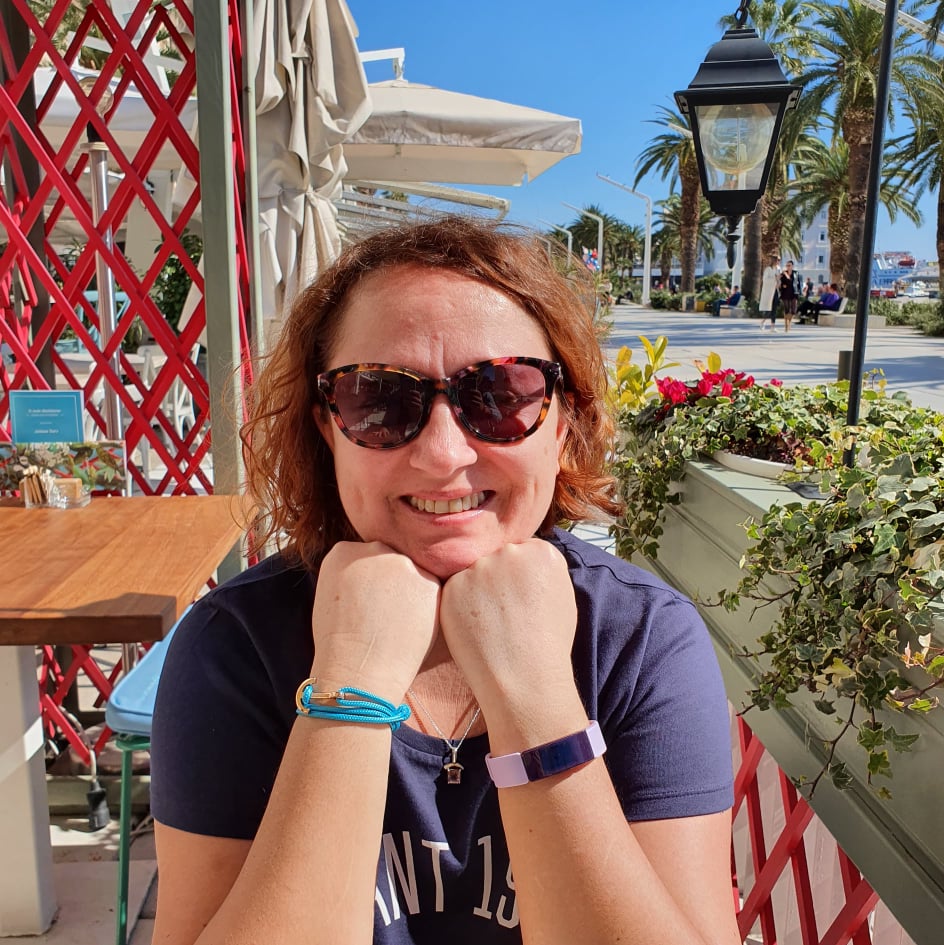
(Last day of freedom in sunny Split)
What do you think about the economic measures the government is taking, are they helping your business?
As a foreigner with not many local ties, finding out how to apply and what the conditions are for the measures that are already starting to be implemented, was the hardest part.
Thank you, actually, for putting me in contact with your TCN colleague Iva Tatic, who helped us apply for the 3250kn per employee (NB, if any other foreigner needs Iva's help, contact This email address is being protected from spambots. You need JavaScript enabled to view it. Subject Iva). We did not get a reply on that yet, and I was also disappointed to see that it does not apply for employees hired after 29.02. I think the date was arbitrary, it should have been the date before they announced the closing of all non-essential businesses. We currently have two employees (besides me and my partner) and we hired them on March 1st, when we reopened our shops (since our business is 100% seasonal) and we could not bring ourselves to fire them, once we had to close the shops. I think it is unfair that we cannot get this aid for them. Since we are willing to keep them on payroll three more months after these 3 months aid is done, I think we should be entitled to receive it.
Like everyone else, I also think the currently announced measures are far from actually helping too much. I would give 10 points to the administration for having the application process for tax deferral online and fast-tracked (we were approved in a day or so). But these taxes will still have to be paid, while we are not sure we will still have a business when this is over. I am hoping the new package Plenkovic announced for this week will be more in the line of what entrepreneurs are asking for. I was happy to see they have mobilized and are asking to have a voice in this. I do believe the economy minister should have already been replaced though.
When did you realise that corona was going to be a big issue?
Pretty early on, since I am used to following world news. I actually just looked at my Facebook post from January. I first got worried on January 14th, when the BBC announced the first case outside China.
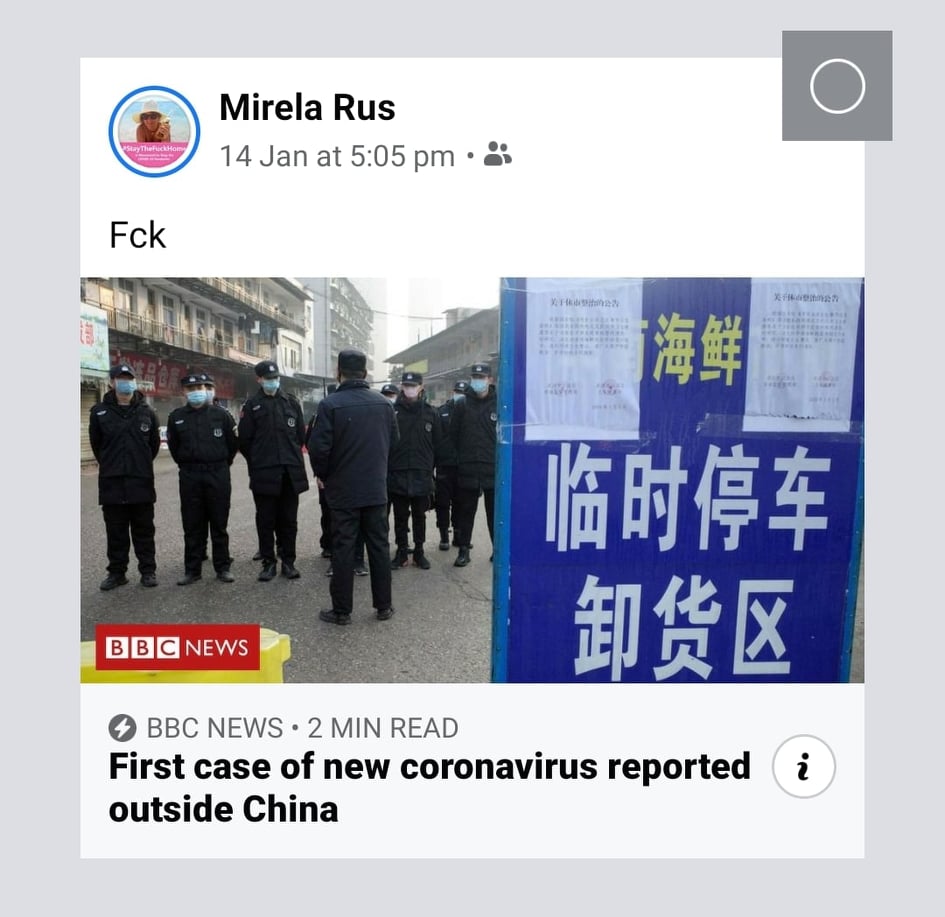
Then really worried and frustrated on January 26th, when a bus full of tourists from Wuhan (!!!) was allowed into Croatia like it was business as usual.
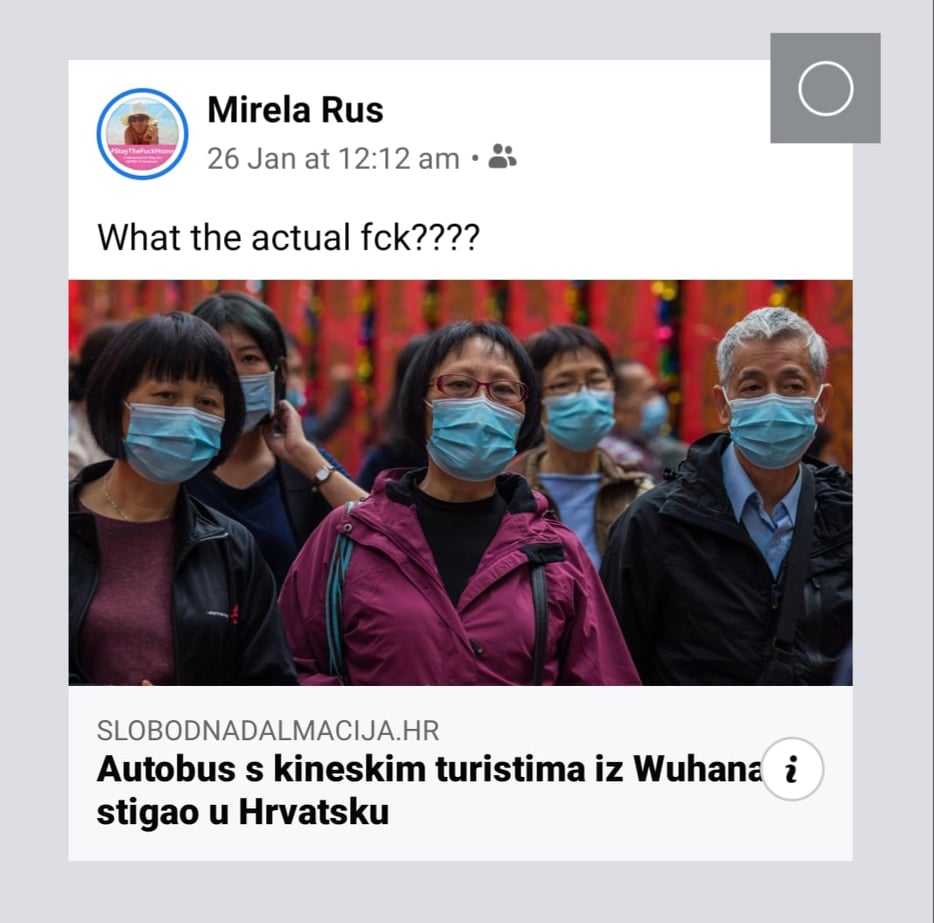
But the first REAL sign that this was not just some casual flu was, for me, on January 29th, when British Airways suspended all flights with China. That was something unprecedented which my former-journalist-mind perceived as confirmation of bad things to come.
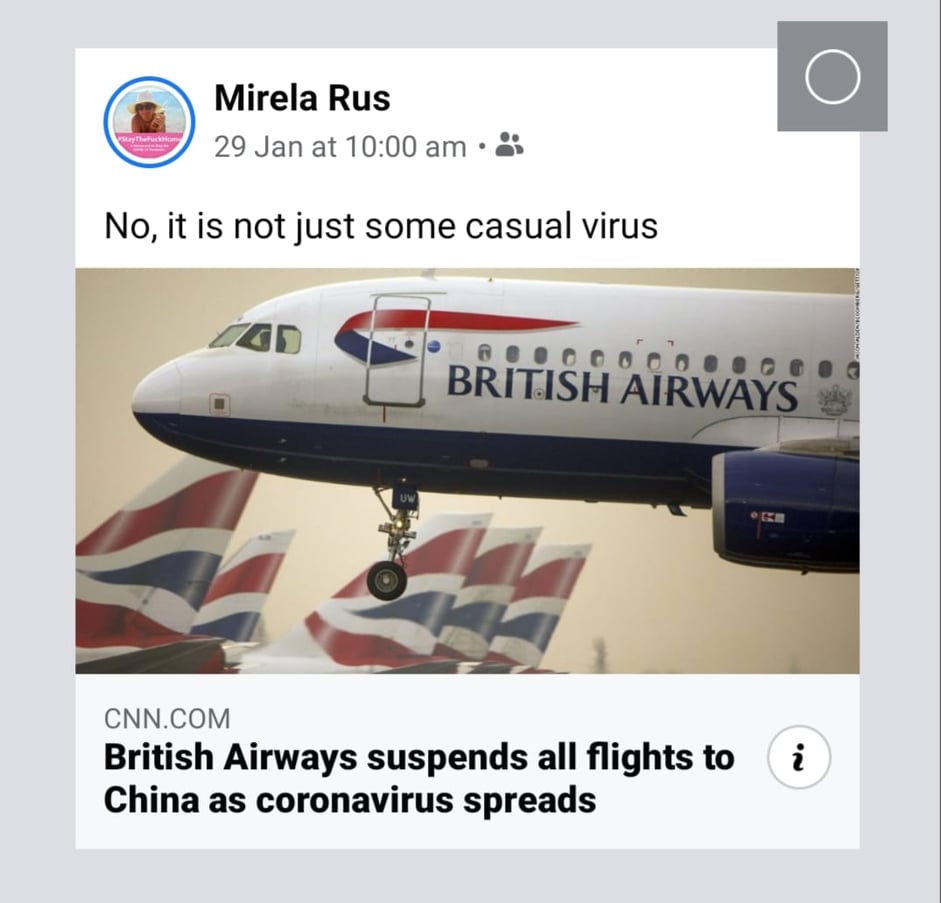
What is your impression of the way Croatia is dealing with the crisis? How safe do you feel?
Well, it all started pretty poorly. No Wuhan tourists bus should have been allowed in the country, but those were early days and I guess nobody wanted to believe this would turn out to be the pandemic scientists were warning us about for years. So – compared to what other countries were doing at the time – I cannot really blame Croatian authorities for not doing more.
But coming back to the present time, I feel safer here than I would feel anywhere else. I am VERY impressed on how authorities are now handling the crisis (and I would happily contribute to having a statue erected for Vili Beros and Alemka Markotic when this is over).
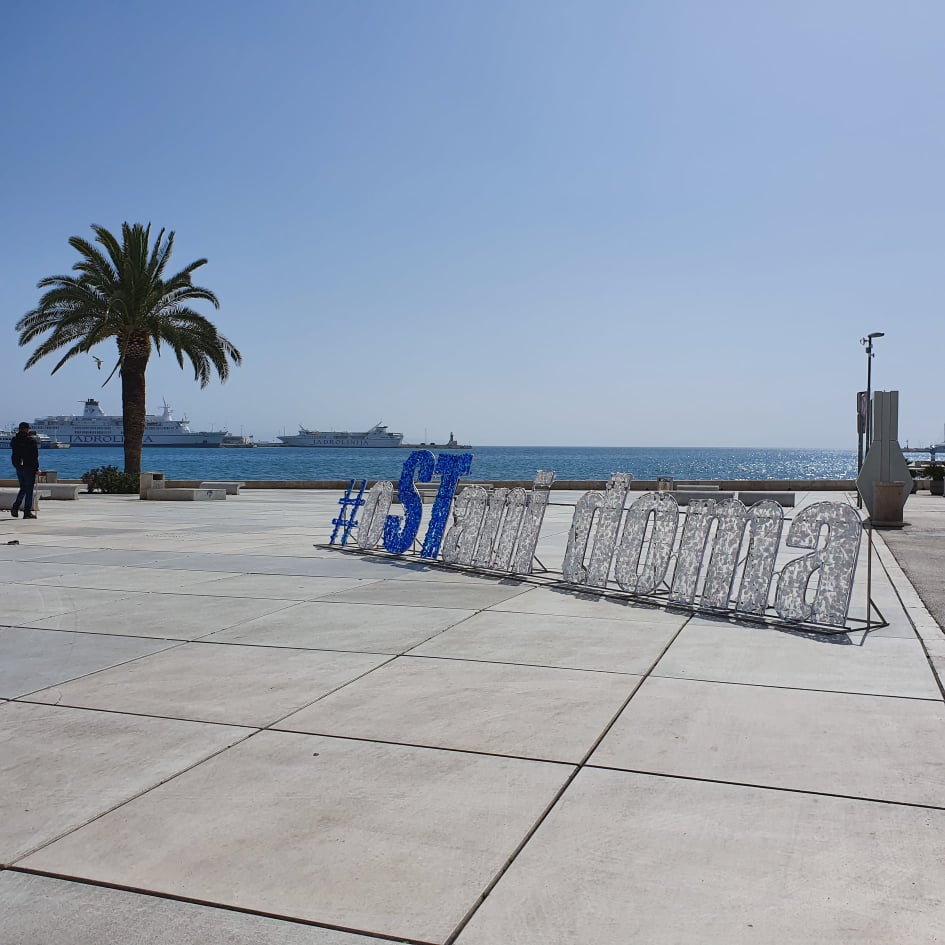
Now compare that to your home country and how they are handling it. What is Croatia doing better/worse?
There is really no comparison possible. I am so sad and mad with the way Romania is dealing with this crisis. The Bucharest government invoked pretty early on the emergency situation and that should have allowed it to take strong measures to restrict movement. But they didn’t, not really. The word to best describe the situation in Romania is chaos.
Medical staff are now resigning in droves in the last couple of days, after getting tired of shouting they do not have adequate equipment or even procedures on how to deal with patients, and rightfully fearing for their and their families’ safety. Medical staff accounts for 20% of the total confirmed cases right now.
As we speak there are 2245 confirmed coronavirus infected persons, and the situation gets worse by the minute. A whole town in Moldova region was just quarantined, after an outbreak at the local hospital. Corruption and incompetence are a daily occurrence in my home country, but now this combination is literally lethal. Combined with the fact that over 200 thousand Romanians have returned home from Italy, Spain or UK from the beginning of this month and many of them did not respect the isolation, I fear Romania is going to follow Italy’s scenario.
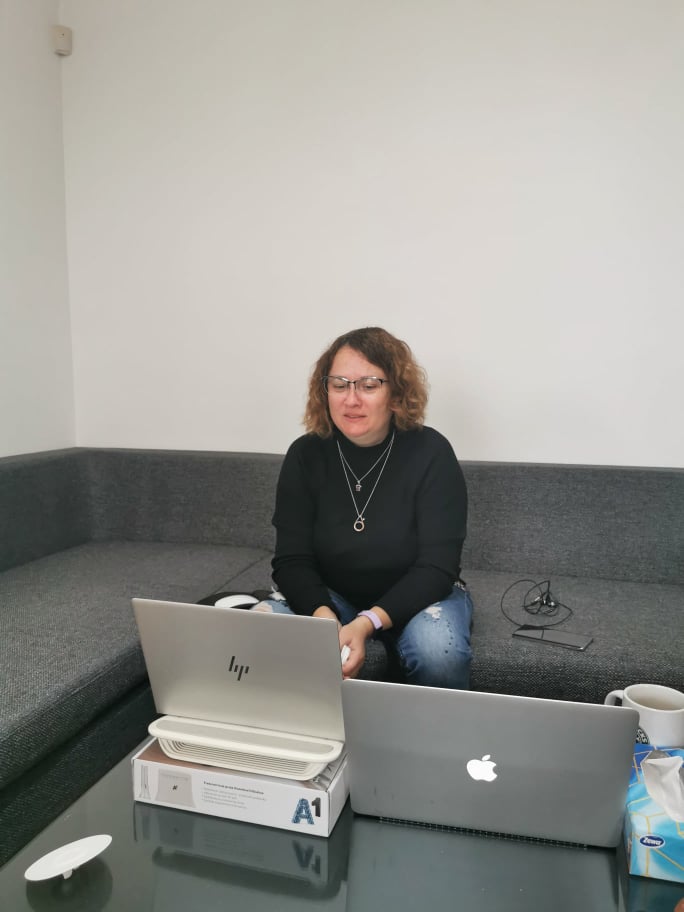
(The realisation of what lay ahead)
What about official communications from the authorities, compared to your home country?
It almost sounds crazy, but I feel so much better informed in a country whose language I still do not speak (TCN has a lot to do with that, as well as Slobodna Dalmacija which I refresh 20 times a day and read with Google Translate).
If someone writes a crisis communication manual after this is over, they will have to give Croatia as the prime example on how this has to be done. As a former journalist and political communications manager, myself, I am beyond impressed. We get all information in a clear manner, twice a day (once a day now), directly from the horse’s mouth, so to speak. The fact that they set up a 113 special coronavirus hotline and a website which now is also partly translated in English, the fact that minister Beros and also Mrs. Markotic do live Q&A sessions on Facebook and the fact the government is sending official info on Viber, that shows they totally understood the need for clear communication and used all tools available in this digital era.
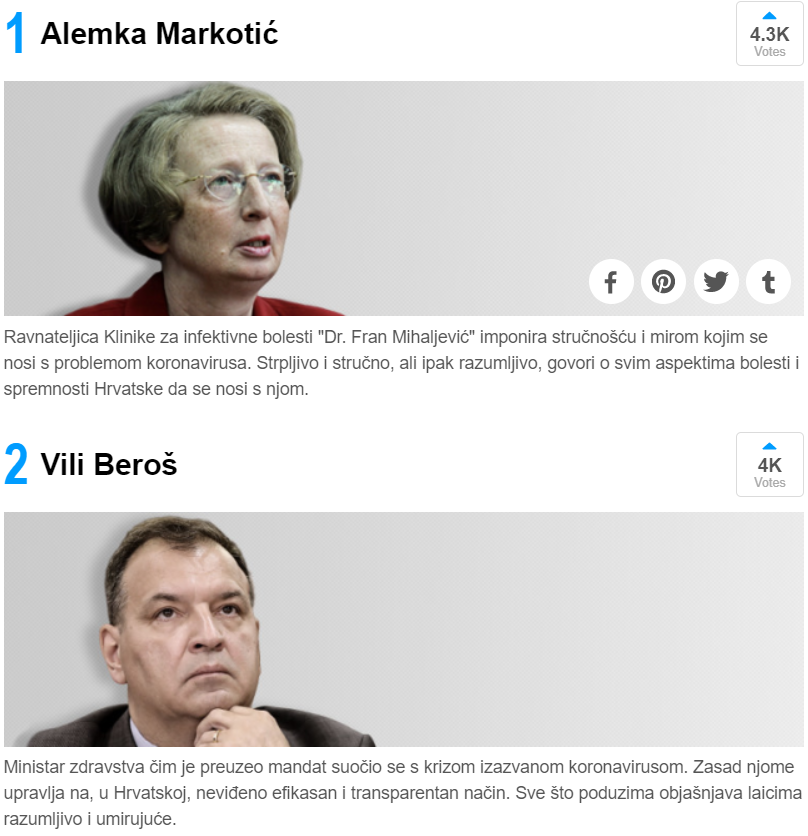
Unfortunately, Romania is at the other end of the spectrum on this, with indecisive action and poor and confusing communication. I will give you just one example, because it affects me personally. My mother is 81 and she lives alone (us three daughters are living all abroad, me in Croatia and my other two sisters in Italy and, respectively, in UK). A week or so ago, the government announced that people over 65 can leave their houses only from 11 am to 1 pm. But a few days later, they added that they can also go out in the evenings if they have dogs they need to walk. And, in case they need to go to the doctor or something else urgent, they can go out at any time during the day. Basically, they pretty much can go out just between 11-13, and also anytime. I would laugh, if it was not actually tragic, since we have a hard time convincing mum to just stay home.
And that is just a small, small example. A week or so ago, they issued an order forbidding local authorities to communicate the local number of cases. They basically decided to stop giving information about the number of cases in each county. The lack of transparency breeds paranoia and lack of trust in authorities, at a time when this is needed more than ever. I am watching from afar, hoping each day they will sober up and start doing the right things, the right way.
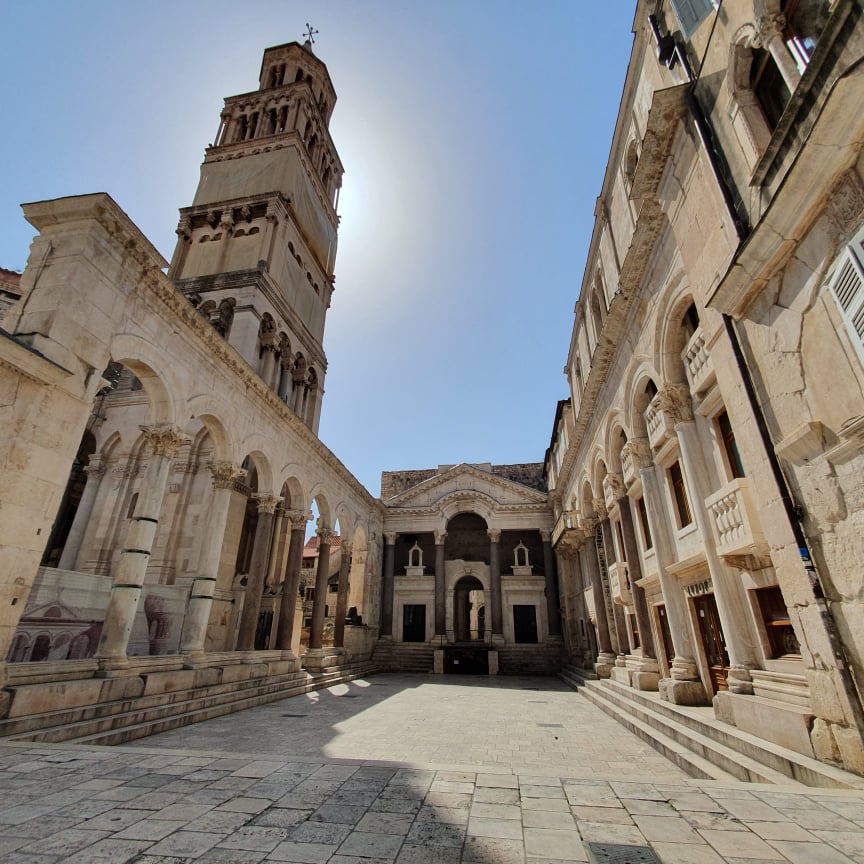
What's the one thing you wish you had taken with you into self-isolation.
My mum.
One thing you have learned about yourself, and one thing you have learned about others during this crisis.
I have learnt that cooking is my crisis/isolation coping mechanism. I usually like to cook when I have time, but since we are at home with basically no work to do, it is the main thing that refills my sanity level back up. We will come out of this with empty pockets, but a few kilos more (although I would have preferred it the other way around).
I cannot say I necessarily learnt new things about others, but I do feel more connected with friends and family, than ever before. The pause we are getting now, forced by the situation, makes us all, I guess, re-evaluate priorities and look at our lives in a new perspective. I cannot imagine our lives being again exactly the same as they were a month ago.
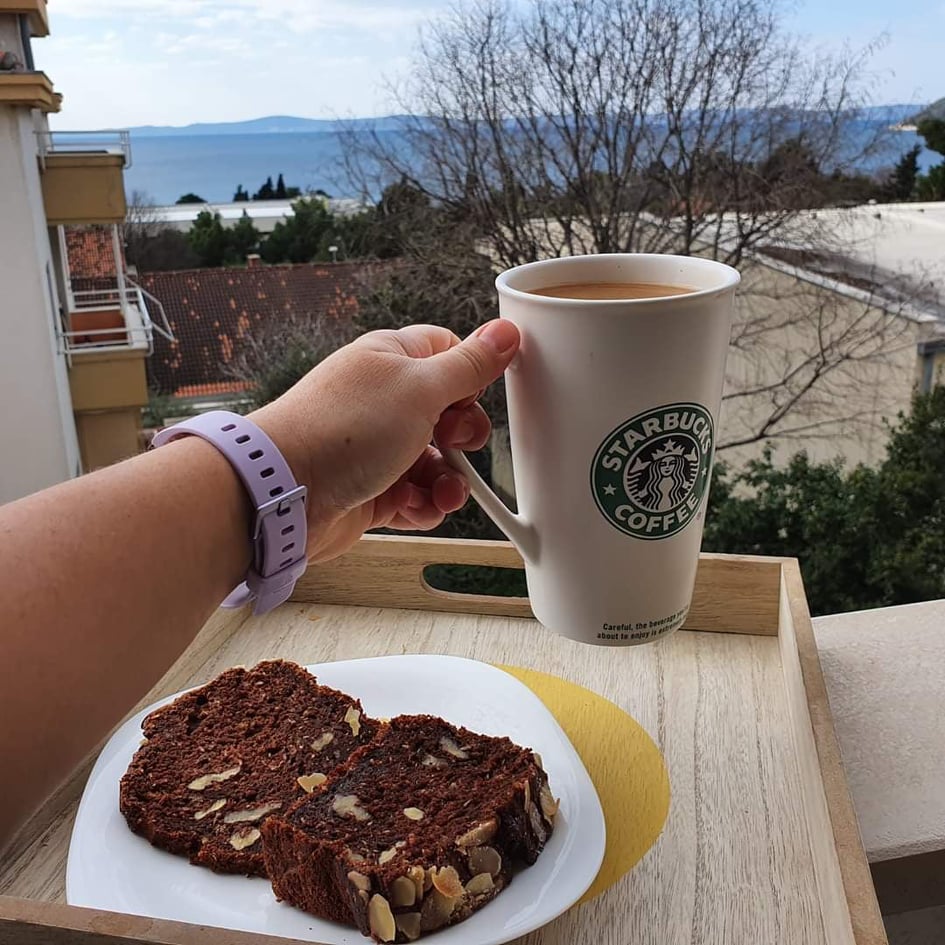
You can learn more about Mirela Rus and her wonderful Breatktime nautical jewellery business in our feature on her in the Foreign Entrepreneurs in Croatia section.
Thanks Mirela, stay safe and see you on the other side.
TCN is starting a new feature series on foreign experiences of sitting out covid-19 here in croatia compared to their home country. If you would like to contribute, the questions are below. Please also include a para about yourself and where you are from, and a link to your website if you would like. Please also send 3-4 photos minumum to This email address is being protected from spambots. You need JavaScript enabled to view it. Subject Corona Foreigner
If you would be interested to record a video version for our partners www.rplus.video please let us know in the email. Thanks and stay safe.
Foreigners Self-Isolating in Croatia: Do You Feel Safer Than in Your Home Country?
Firstly, how are you? Are you alone/with someone? Tell us a little about your situation and sanity levels.
What do you think about the economic measures the government is taking, are they helping your business? (PLEASE IGNORE IF THIS DOES NOT AFFECT YOU)
When did you realise that corona was going to be a big issue?
What is your impression of the way Croatia is dealing with the crisis? How safe do you feel?
Now compare that to your home country and how they are handling it. What is Croatia doing better/worse?
What about official communications from the authorities, compared to your home country?
What's the one thing you wish you had taken with you into self-isolation.
One thing you have learned about yourself, and one thing you have learned about others during this crisis.
TCN has recently become a partner in Robert Tomic Zuber's new R+ video channel, initially telling stories about corona experiences. You can see the first TCN contribution from this morning, my video from Jelsa talking about the realities of running a news portal in the corona era below. If you would like to also submit a video interview, please find Robert's guidelines below
VIDEO RECORDING GUIDE
The video footage should be recorded so that the cell phone is turned horizontally (landscape mode).
There are several rules for television and video news:- length is not a virtue- a picture speaks more than a thousand words
In short, this would mean that your story should not last more than 90 seconds and that everything you say in the report should be shown by video (for example, if you talk about empty streets, we should see those empty streets, etc.).
How to do it with your cell phone?First, use a selfie camera to record yourself telling your story for about a minute and a half. Ideally, it would be taken in the exterior, except in situations where you are reporting on things in the interior (quarantine, hospital, self-isolation, etc.). Also, when shooting, move freely, make sure everything is not static.
After you have recorded your report, you should capture footage that will tell your story with a picture, such as an earlier example with empty streets.
One of the basic rules of TV journalism is that the story is told in the same way as a journalist with his text. Therefore, we ask you for additional effort. Because we work in a very specific situation, sometimes you may not be able to capture footage for each sentence of the report. In this case, record the details on the streets: people walking, the main features of the city where you live, inscriptions on the windows related to the virus, etc.
The same rules apply if you are shooting a story from your apartment, self-isolation, quarantine. We also need you to capture footage that describes your story.
When shooting frames to cover your reports, it is important that you change the angle of the shot (in other words, shoot that empty street from several angles). Also, when shooting a detail, count at least five seconds before removing the camera to another detail.
The material should be about 5 minutes long (90 seconds of your report + frames to cover your story).
After recording everything, send us to Zagreb, preferably via WeTransfer to This email address is being protected from spambots. You need JavaScript enabled to view it.
5 Years a Foreign Entrepreneur in Croatia: The Good, Bad & Ugly
January 27, 2020 - Life as a foreign entrepreneur in Croatia as so many local people are emigrating. Mirela Rus from Break Time reflects on the good, the bad, and the ugly of her first five years of doing business in Croatia.
About five years ago, at the Days of Small Boatbuilding at Le Meridien Lav in Podstrana, I met a very nice Romanian couple with a stand selling nautical jewellery which they made themselves. They explained that this was their new business, and they planned to make it work so well that it would support their new life in Croatia.
I thought they were nuts and gave them a maximum of six months before they headed back to Bucharest.
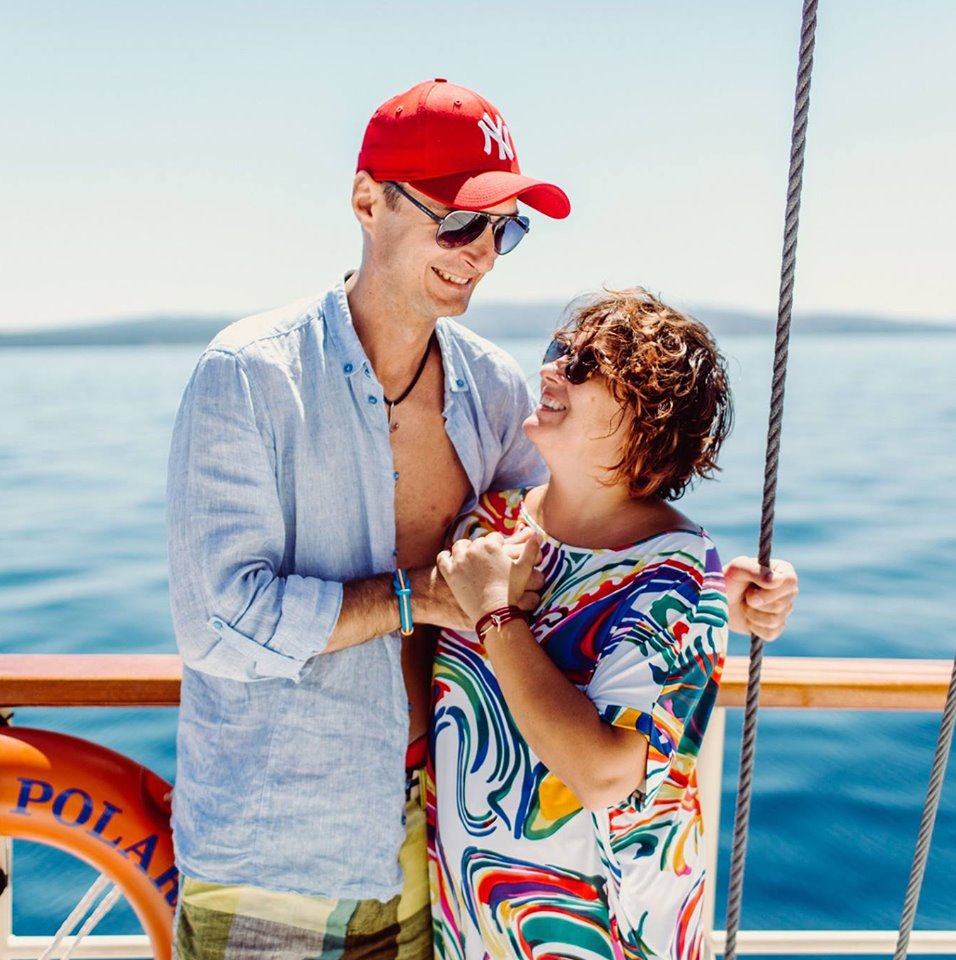
But far from struggling, Mirela Rus and partner Ionut flourished firstly online, then in Split and eventually in five cities in Croatia with their unique brand of nautical jewellery. Mirela was our first interview in our Foreign Entrepreneur in Croatia series two years later, and now she is back, a little older (though not much), a lot wiser, and with some great and honest reflections on the positive and negative experiences of five years of being a foreign entrepreneur in Croatia.
You are a foreign entrepreneur in Croatia for 5 years now, and you are still here! Tell us firstly what it is you do.
Well, in a nutshell, we are producing and selling (in our own shops) high-quality nautical-style artisan jewellery.
It is a family-run business, meaning that my partner, Ionut Copoiu, handcrafts the jewellery and I handle the marketing and sales part.
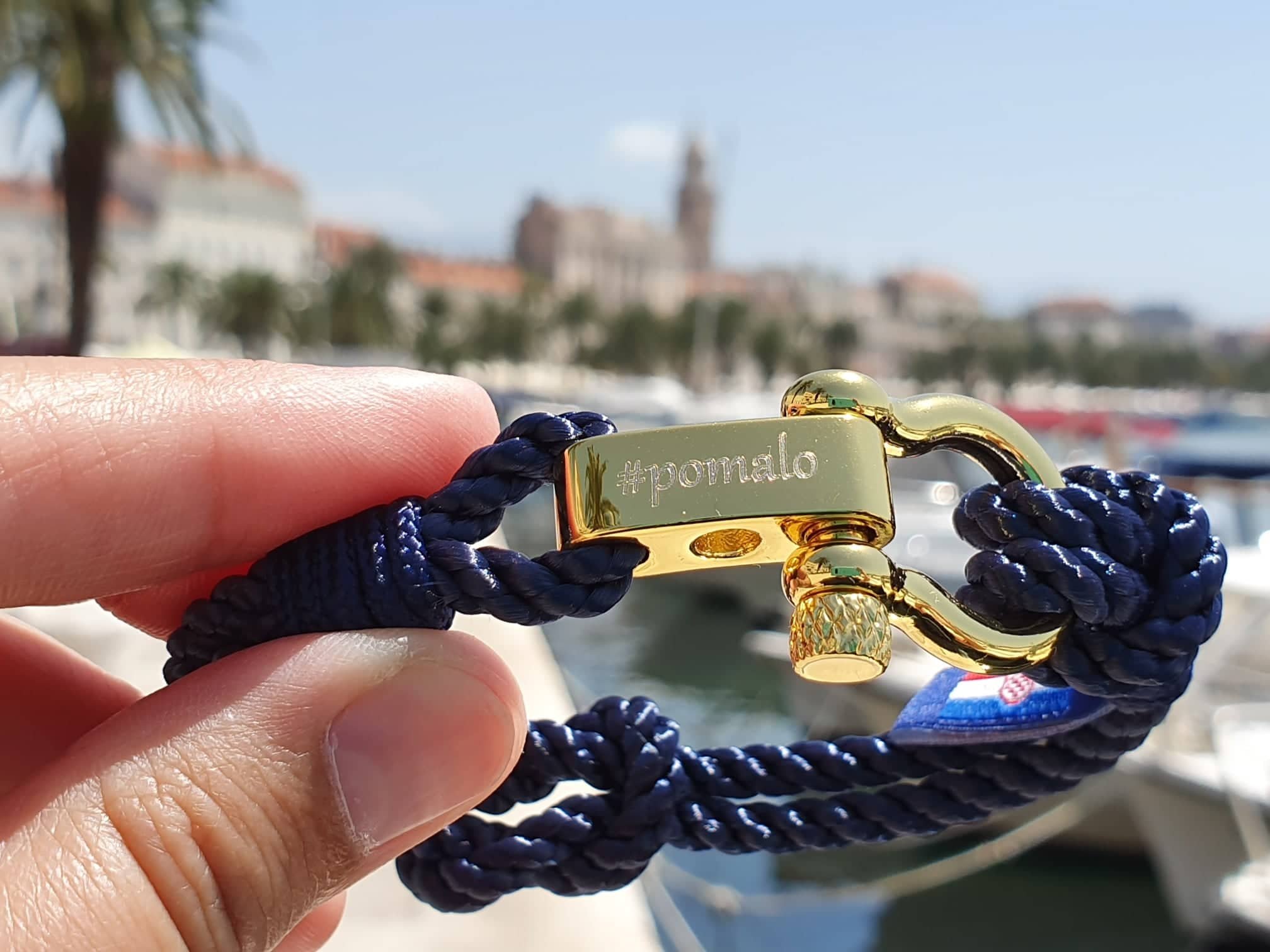
Looking back over the 5 years at the good, the bad and the ugly, let's start by asking if you are pleased at where you have ended up 5 years on?
I am pretty sure no entrepreneur is ever content with where he/she is at any given moment, since we all have a tendency to push ourselves to do more. The lesson learned in my first 40 years of life was that we should value quality of life more than business success and that was the main reason for our move here. We left Bucharest to escape stress and pollution and a generally hectic lifestyle. In that respect, I think we are pleased with our lives 5 years on. I still pinch myself every morning while looking out the window and having the sea in front of me. I know I could never ever live inland again.
How has the initial business model changed to what you have today?
We came to Croatia to build houses and we are running a handmade jewellery retail business instead. As they say, life is what happens while you’re busy making other plans
We planned our move to Croatia around the business model we had going in Bucharest, which was real estate development. Me and my partner made a great team, Ionut was building houses and apartments, I was promoting and selling them. We were actually always selling everything either off-plan or during construction, our motto was quality over quantity and it was going great.
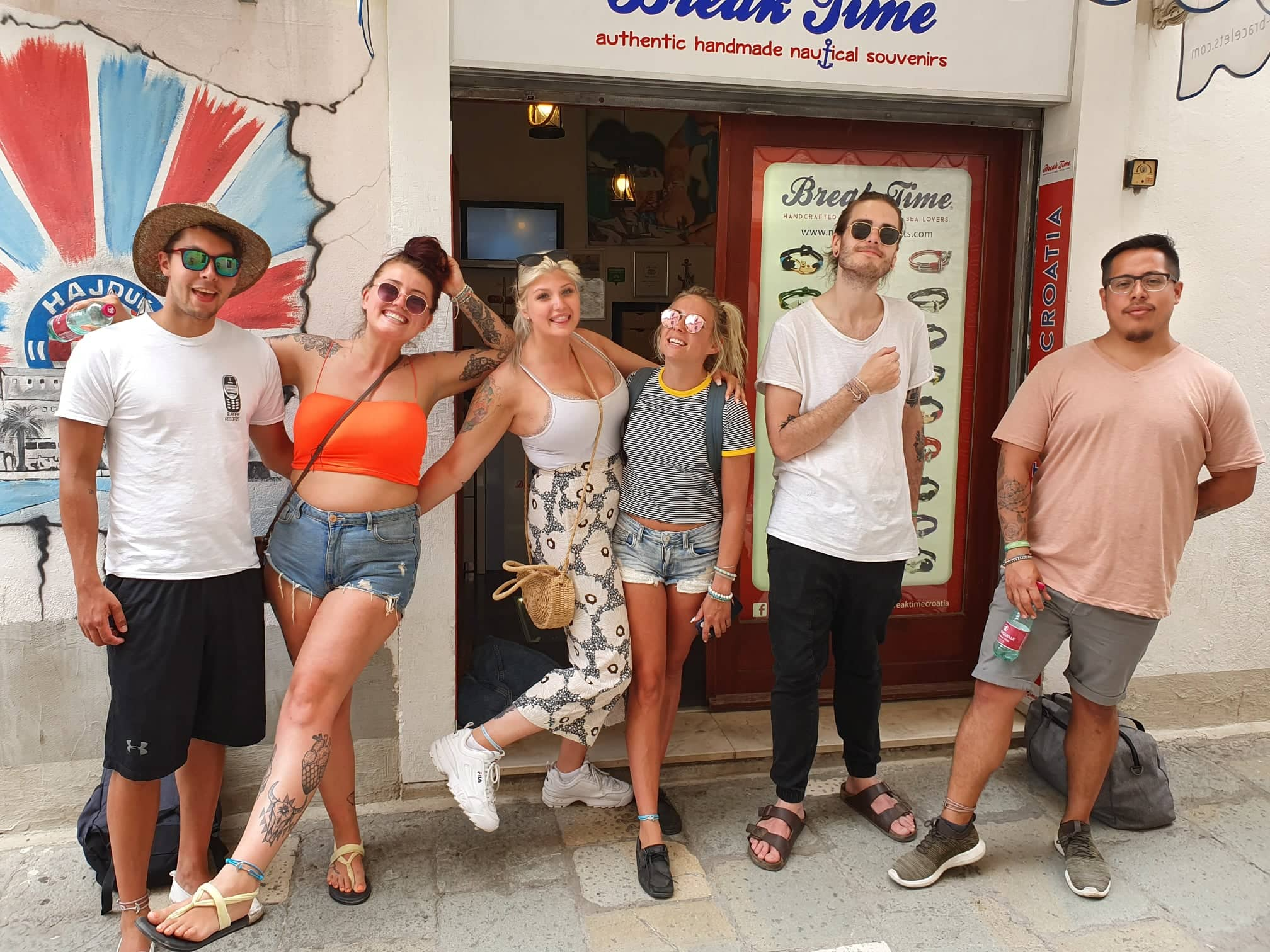
We planned our move for several years, scouting locations each summer and trying to understand how things work in our soon-to-be home country. In 2014 we created our Croatian company, we named it Break Time (we had other names higher on our list, but that was the first name accepted) and we finally decided on a land to buy and we contracted the services of a real estate agency that we thought was trustworthy, with the sole purpose of them making sure all papers are in order and help us obtain the building permits in the next 10-12 months, so that we would be able to start building the next year – since we planned to permanently move to Croatia in autumn 2015.
However, they did not disclose to us that a new law was basically halting constructions in many places around Croatia, until the UPU (Urbanistički plan uređenja) was finished – and the village where we bought the land was affected, too. We found this out in June 2015, from a local architect we contacted to help us get the building permits (since the agency we initially worked and that we also planned to hire for permits and site supervision, stopped replying to our messages). We were in disbelief and did not know what to do, since we were basically 3 months away from our move-date (by then, our Bucharest apartment was sold, our business there was almost finished, and we had no new plans for continuing it). We decided to move here anyway, and hope things would clear up soon enough.
Luckily for us, we are easily bored doing nothing, so – a month after we moved to Split – we decided to use Ionut’s hobby of making bracelets out of nautical items (which was helping him destress while running the construction business in Romania) and try to turn that into a – what we thought will be – a side-business to help us kill time and make some money while we wait for the land to be cleared for construction.
Little did we know that this will become our main business…actually the only business, since 5 years on, we still do not have the building permit (which we finally were allowed to apply for – and we did – in spring 2019).
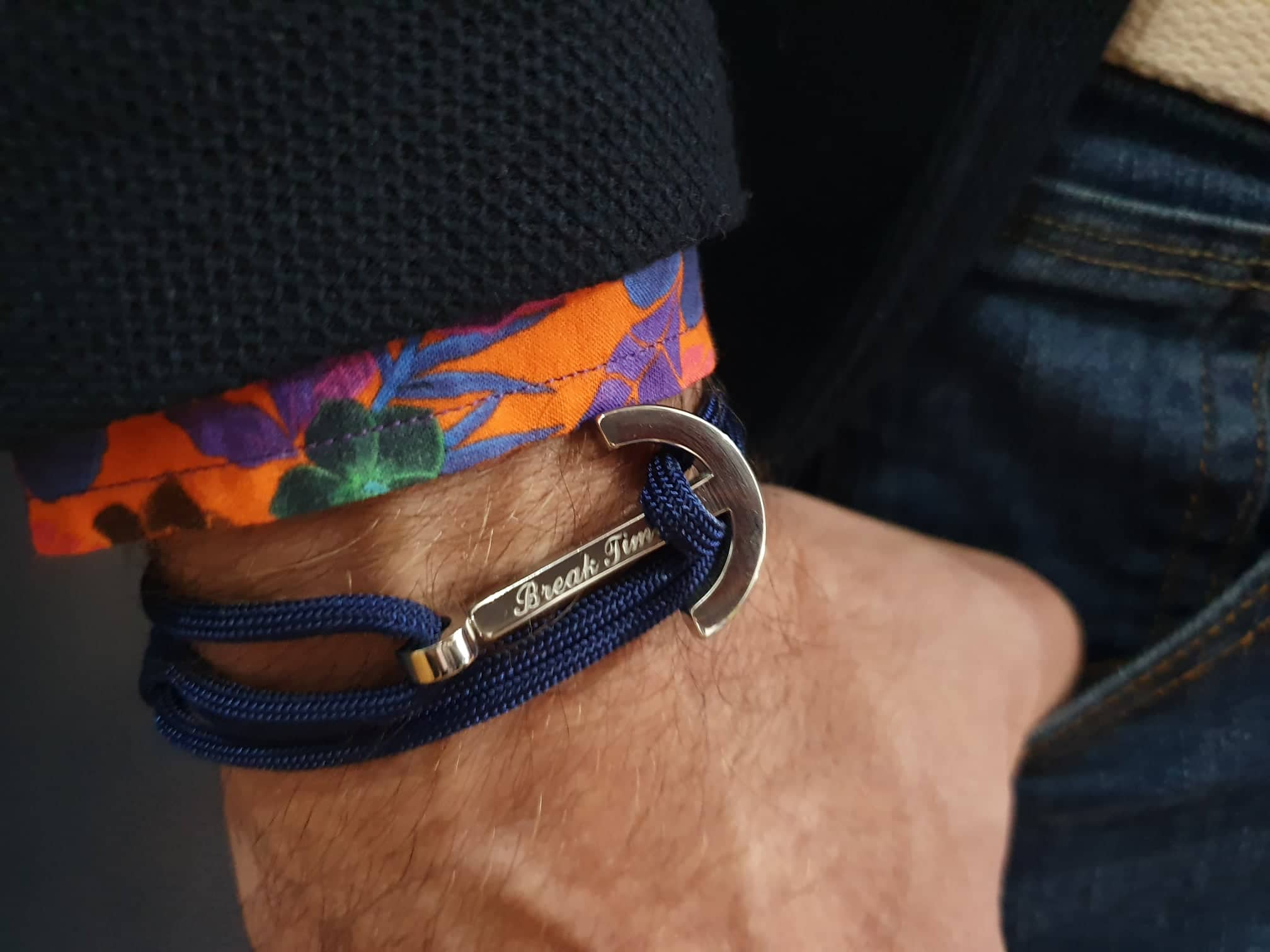
Let's start with the positives about your experience of being an entrepreneur here. Assuming there are any...
Of course, there are positives, otherwise we would not still be here. First of all, corruption is not that widespread as everyone comments it is. We come from a country where we actually had to deal with corruption absolutely each step of our way. We never had to bribe anyone in the 5 years we started our Croatian company. I put that in the plus category.
What has surprised you, in both positive and negative ways?
I will mention one that is both a positive and a negative. We appreciate Dalmatia for its laidback style, the slower pace of life that actually gives you time to enjoy it.
At the same time, that also means we had to get used to people saying they will do something or be there in X amount of time, and most of the time that never happens. One day “Dalmatian style” can mean one week (or more). I admit I am still not used to this, although I am trying to take that into account and plan accordingly each time.
You have had stores in, I think 5 cities in Croatia. Are some cities easier to do business than others?
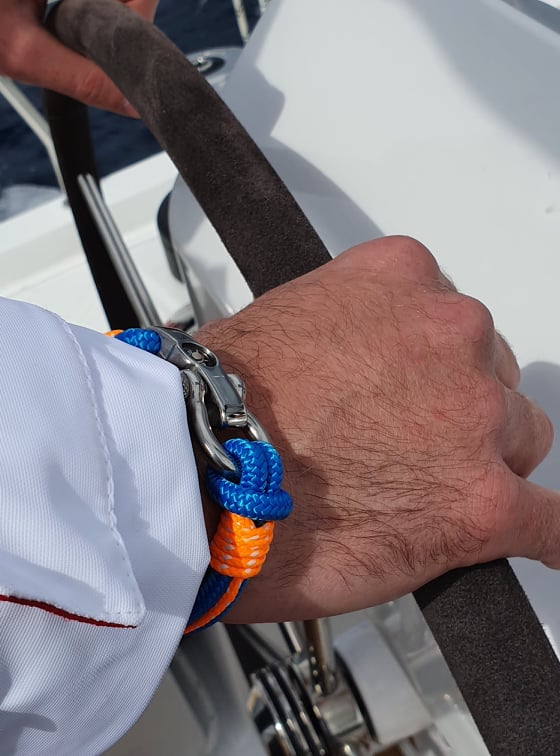
Hands down, our favourite city to do business is in Split. And our least favourite was Dubrovnik.
Despite its record tourism, you decided to close your Dubrovnik shop as business was worse and worse in the peak season. Tell us about that.
Dubrovnik was the second town we opened a Break Time shop. And the first year was great, business-wise. Then it started to go downhill, as the quality of tourists in Dubrovnik started to go downhill, too. Every business around us was losing customers. It was still a viable business, but it was not worth it for us anymore, we got tired by the everchanging local rules, lack of predictability and lack of support for local businesses. To give you just two examples: the year we opened the shop it took us two months and countless trips and phone calls to Grad just to make sure we got the specifications right for the outdoor shop signs, because it was a new design that Grad wanted. Then we had to make those signs and they were not cheap. Then next year Grad again changed the design – and we sent our shop manager to find out if we were also affected and needed to change them again. She was assured it is not the case, and only new businesses were required to have the new signs. Sure enough, in the last week of June we were told we cannot use the old signs starting 1st of July.
There was nobody available to make us new signs in less than a week. It actually took over a month. Our sales dropped in July and August (which were supposed to be our best months) because we had no outdoor signs, so people had a harder time finding us. It was exhausting and nerve-wracking.
The second example relates also to outdoor signs. Grad has, at the beginning of every street in Old Town, a textile poster signaling the names of each business on that street.
We contacted Grad in February 2016 and asked to have our name on that poster, instead of the name of a business that was in our space a few years back. They told us they refresh the names every other year and that – unlucky for us – was not the year to do it. We asked if we could change the letters ourselves (they were just sticker letters, it would have taken a couple of hundred kuna and a few minutes to do it). We were not allowed. The next year, in spring, we went back to Grad and asked again. Guess what…that was still not the year to do it. Long story short, they finally decided to update the signs in 2019. We had to pay for being there, which meant that businesses that did not pay, were not written on the poster. To me – that is weird (having also the experience of Split, where our names were added on the signs at both ends of our street in one month after we requested it, at no charge to us!). However, we paid the tax (on top of all the other taxes we were paying monthly to Grad Dubrovnik, which were also higher than in any other town we opened shops). That was March 2019. Signs were changed mid-August 2019, basically almost at the end of that summer season. Absolutely ridiculous. The day we closed the Dubrovnik shop I actually felt relieved.
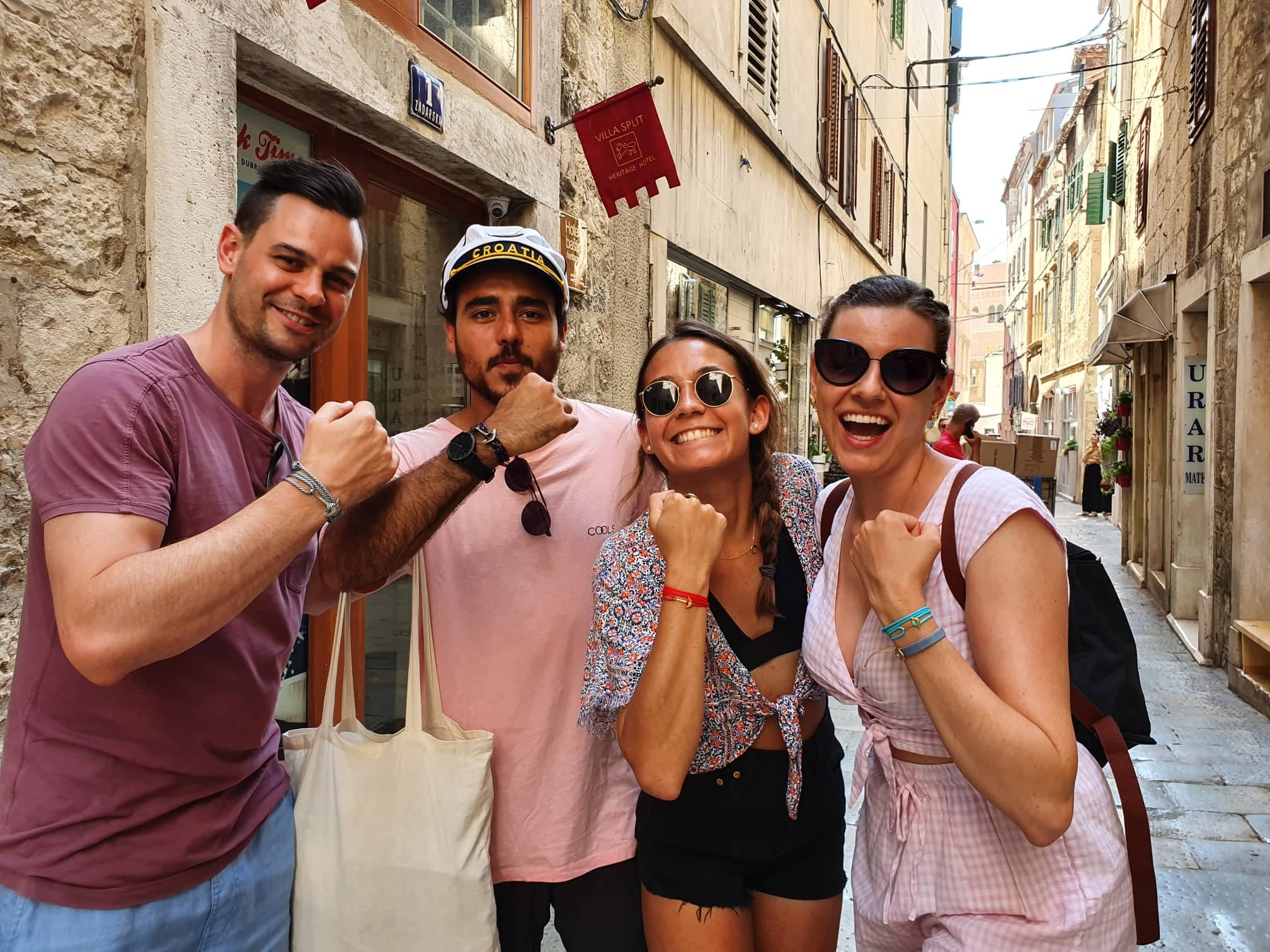
And now a look at the bad and the ugly. Coming from Romania, you are more used to bureaucracy and corruption than most. How has the Croatian business experience been for you in terms of negatives?
The main thing that I have to mention as the biggest negative are taxes. Too many and too high. VAT at 25% is a killer for small businesses. I keep wishing the Croatian Government would wisen up and lower it, in order to give oxygen to the many businesses struggling to survive here and help create a strong middle class, which should be the backbone of the economy.
The second big problem is finding good employees. Or actually finding ANY employees. With the exception of Split, where we are always finding good people and fast, all the other towns we opened shops (Dubrovnik, Porec, Rovinj, Zagreb) that was our biggest nightmare.
In Dubrovnik, for instance, we almost could not open the shop in the first year because we literally could not find anyone. True story: I hired a girl from Osijek without meeting her or even getting her CV…a friend of hers came to us and told us she has a friend in Osijek that is looking for a job in Dubrovnik…I told her I will hire her friend if she is in Dubrovnik the next day. She came! And she actually stayed with us, as shop manager (moving each summer from Osijek to Dubrovnik) until we closed the shop last year.
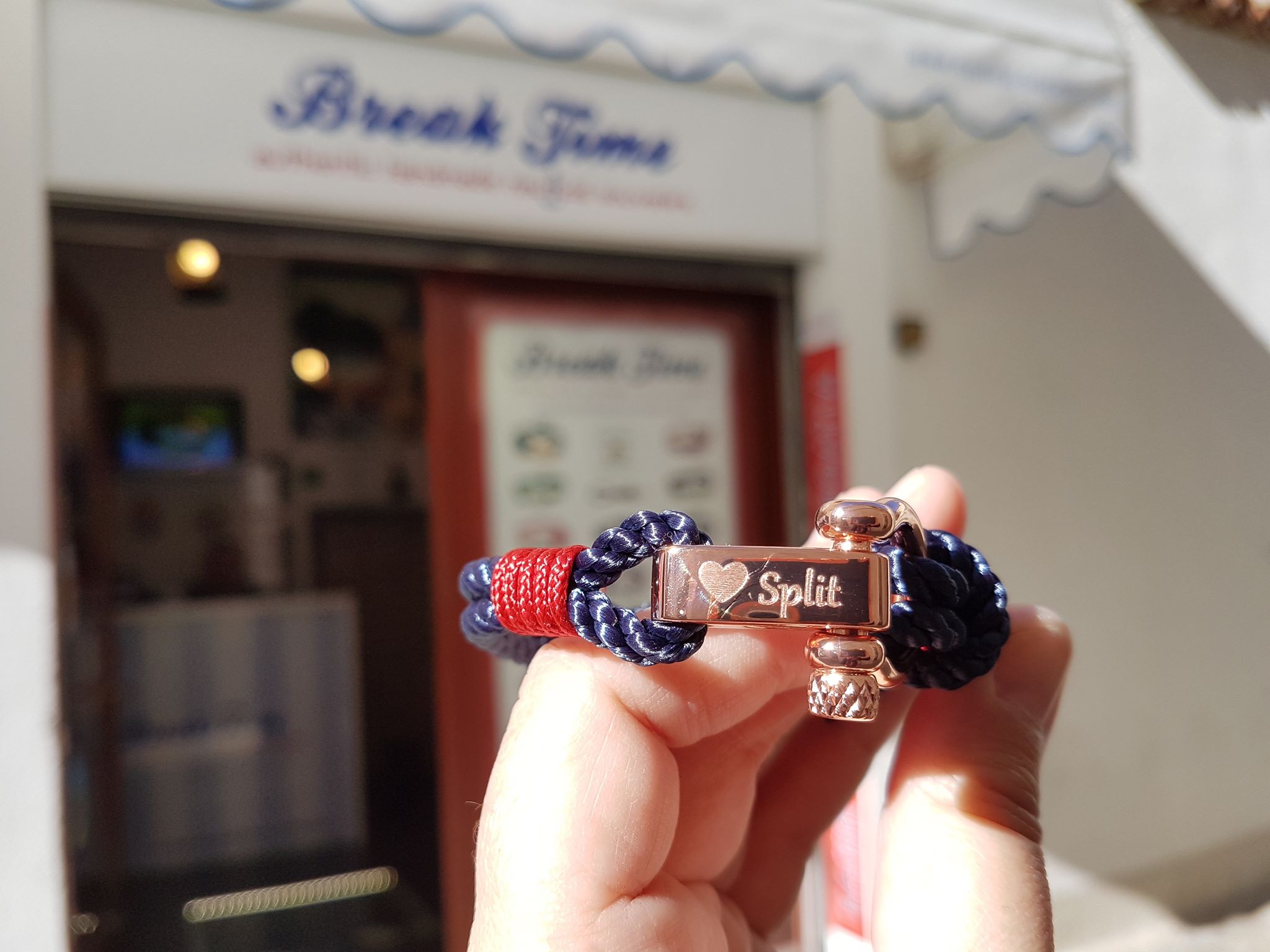
You once told me that some Romanian friends from an industrial town visited you in Split and could not believe the number of opportunities there were for business.
And it is true. All we see around us in Split is opportunity. What I think is needed first and foremost is a shift in mentality. I know things are actually hard for many, but complaining is a national sport that does not help anybody. Especially young people, who start their adult lives already thinking they cannot do anything here and they better leave abroad. The reality is that life is not easy anywhere. A can-do mentality though might make all the difference.
As a Romanian, your appreciation of the bureaucracy and corruption in Croatia is perhaps a little different. How would you compare them in the two countries?
As I mentioned earlier, on the lower day-to-day operational level, Croatia is by far better than Romania. Which is not necessarily always a good thing, paradoxically. Take for instance our building permits. Both in Romania, as well as in Croatia, we always want to stay within the law, we never want to build more than what law says, or more floors or more sqm than what we get approved etc. Both in Romania and Croatia bureaucracy is a bitch.
The law says, in most cases, that public institutions should issue documents within 30 days of the request being made. Sometimes all the clerk needed to do is put a stamp on your paper – but he still would tell you to return in 30 days. However, if you gave him some money…say 20 euros…he would stamp that right there and now. Again – not asking for any illegal documents, just ordinary documents.
In Croatia, we found that for a building permit in a village, we had to deal with three different levels of municipality/county clerks and offices. Each asking dozens of papers to be brought from the other municipality (some which could have easily be obtained online in a minute, but then they would not have the stamp on it, right?). When you bring those, they ask for more. Then they tell you to wait 30 days. Unless you are unlucky and the only clerk dealing with the problem at hand gets sick and goes to medical leave for a month. So…to be honest, we would have happily paid 20 euros to someone to have them do their job. But there was no-one to pay. They simply could not care less that you are losing time and money, and there is nothing you can do but run from one office to the other and wait…and do it all over again.
We have a huge appreciation for our local architect, Ozana Šustić, who is the one dealing with all these issues, not just for us, but for dozens of other clients, I am not sure how she is still in one piece. We have another business that occupies our time and helps us pay the bills so we can continue to live here…but for other people, getting a permit for their house to get renovated in time for the season, so they can rent it to tourists, is the difference between having what to feed their kids with or struggling to get by.
That being said, other than with the real estate-related bureaucracy, we actually had only positive experiences in dealing with authorities in Split. We still do not speak Croatian, except for basic phrases, and we still continue to go to whatever institutions we might need to on our own, without a translator. And every time without fail we encounter clerks that speak English back to us and solve our problems within minutes. I must say this continues to amaze us and I must say we really appreciate this happening to us.
And a new direction for Break Time. You have recently teamed up with Andrija Colak, the king of franchising in Croatia. Tell us about that and your new franchise direction
We are, indeed, very excited about the new direction we decided to follow. After opening six shops in total, we realized we cannot keep it up and develop the business based on this model. It was very hard to run shops basically at each end of Croatia, from Istria to Dubrovnik and to Zagreb, and do a good job at it. However, we could still see the potential for expansion, and we kept getting requests for distribution from all over the world.
We decided to keep just the two shops in Split, where we live, because they were also our best shops and it was easier to run. And to use all the experience we gathered in these five years and to focus our energy on opening our brand for franchising.
Thank you, Paul, for actually introducing us to Andrija – you are the godfather of the Break Time franchise, in a way
We have been working with Andrija since – I think – September last year, to prepare our brand for franchising. I had no idea the amount of work to be done and all the details and manuals we had to prepare, I am so grateful to Andrija for his guidance and recommendations, we truly would not have been able to do it without him. But we feel confident now that we are ready and we have a good, comprehensive, solid franchise in a niche of its own, so we are looking forward to what the future will bring. I must say though, we are targeting less (and we are less inclined to approve franchisees in) Croatia, and more international coastal destinations in countries like France, USA, UK, northern countries etc.
What advice do you have for a foreign entrepreneur looking to start a business in Croatia?
I actually always have several:
- Join local expat groups and ask for feedback, advice, recommendations. For us, that was the greatest fountain of information in a country we knew nobody and did not speak the language.
- When choosing the business you want to open, make sure you do not step on anyone’s (local) toes …it might cost you, since most places in Croatia everyone knows everyone, so you do not want to make enemies.
- Get the best commercial lawyer and accountant that you can find.
- Take every katastrofa story you hear related to the business area you want to activate in, especially from locals, with a grain of salt. And if someone says “that cannot be done”, do not take their word for it, check for yourself.
And lastly, knowing what you know now, would you do it all again? Why/why not?
Well, I have two answers for this question.
If I am thinking about the business we came here to do in the first place (real estate development and maybe tourist rental): 90% I would not do it all over again. Knowing what I know now and seeing how things get stalled, I would tell my 5-years-back-self to stay out of it.
If I am thinking about the business we ended up doing (handmade nautical jewellery), I would totally do it all over again, almost exactly as we did. Because everything we did, all the trial-and-error or trial-and-success things we did brought us where we are now and is giving us the knowledge and opportunity to be able to guide other entrepreneurs to be successful with opening their own Break Time Franchise store.
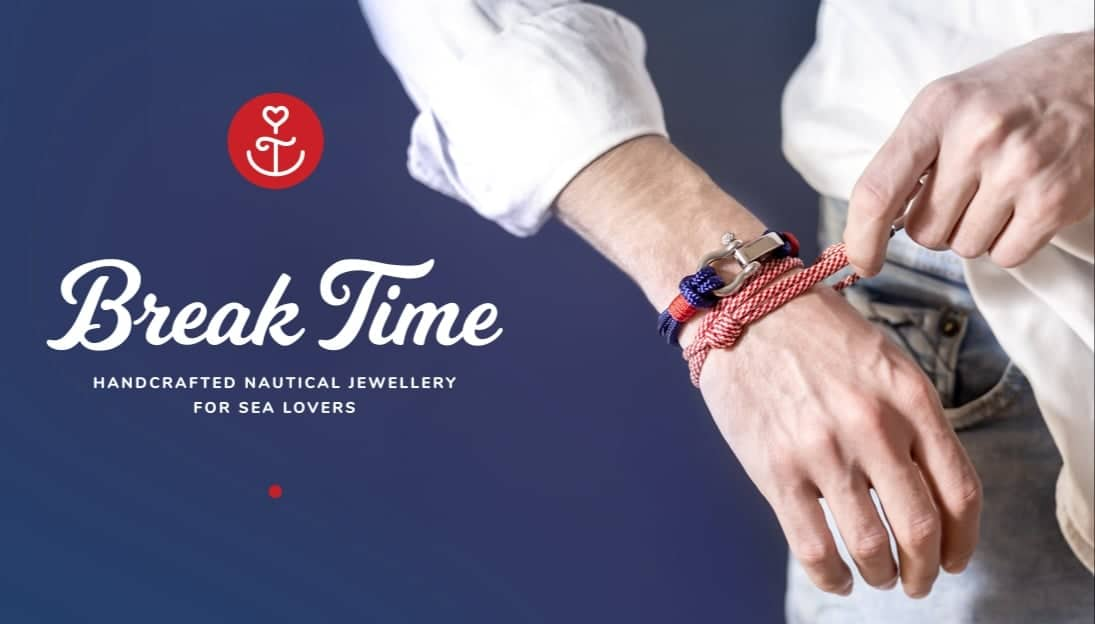
You can connect with Mirela through the official Break Time website.
Are you a foreign entrepreneur in Croatia who would like to be featured in our series? Please contact us at This email address is being protected from spambots. You need JavaScript enabled to view it. Subject Foreign entrepreneur in Croatia.
Romanian Entrepreneur Shows Business Cafe International How to Succeed in Croatia
The second Business Cafe International took place on June 10, 2019 at Cafe Lateral in Zagreb, featuring successful entrepreneurs from Jan de Jong Born from Holland, Mara Vitols Hrgetić from Latvia and Mirela Rus from Romania. It was an inspiring evening.
Among several positive initiatives to promote networking and the entrepreneurial spirit in Croatia, the recent expansion of Business Cafe to its international version has given the opportunity for Croatia's entrepreneurs to hear the experiences and success stories of foreigners who have moved to Croatia and succeeded, despite the challenging business climate. The first one was a great success a few weeks ago, with some very solid contacts made, and the second edition was no different, with three great speakers.
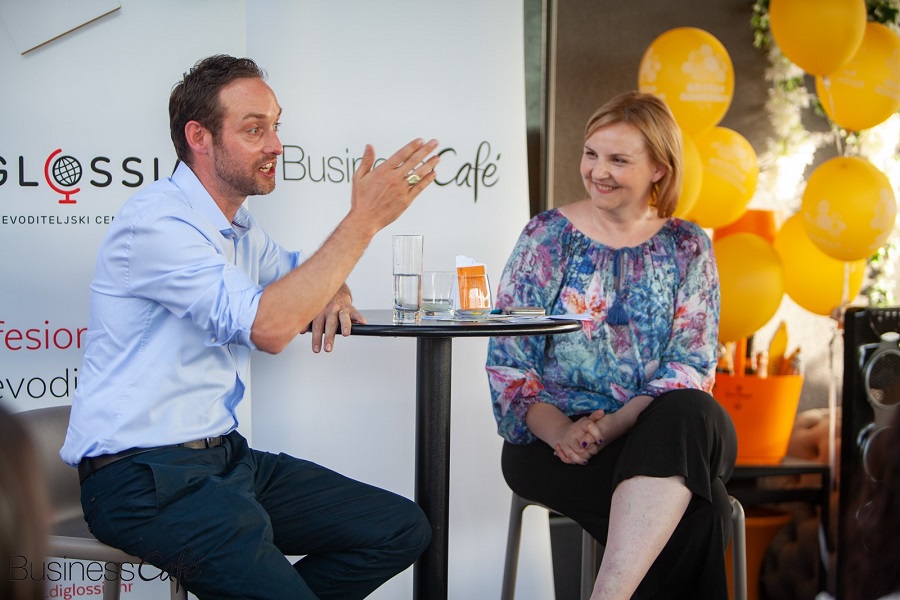
Jan de Jong Born is from the Netherlands. He moved to Croatia in September 2006 at the age of 22, and within 10 months built a call centre with 30 full-time employees. Over the past 13 years, he co-founded several companies. At the end of 2015, he made a successful exit from the call centre he had founded. Today, he is the owner of M+ Agency (a full-service digital marketing agency) and Webpower Adria (an email marketing service provider).
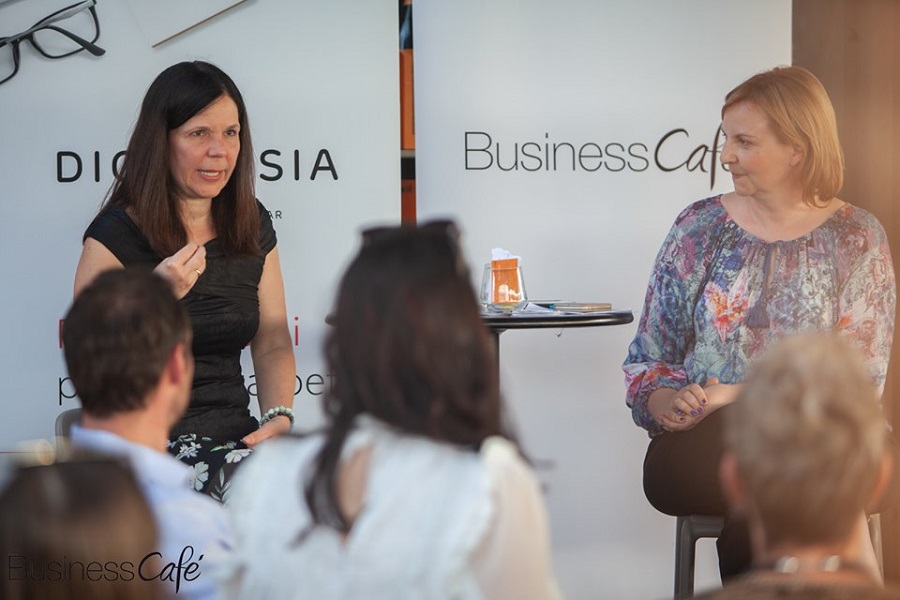
Mara Vitols Hrgetić, a Latvian born in Venezuela, moved to Zagreb with her husband, a Croatian Venezuelan. She co-founded and today runs Forum event centre. She also organizes G2 meetings – conferences connecting the Croatian diaspora with local entrepreneurs.
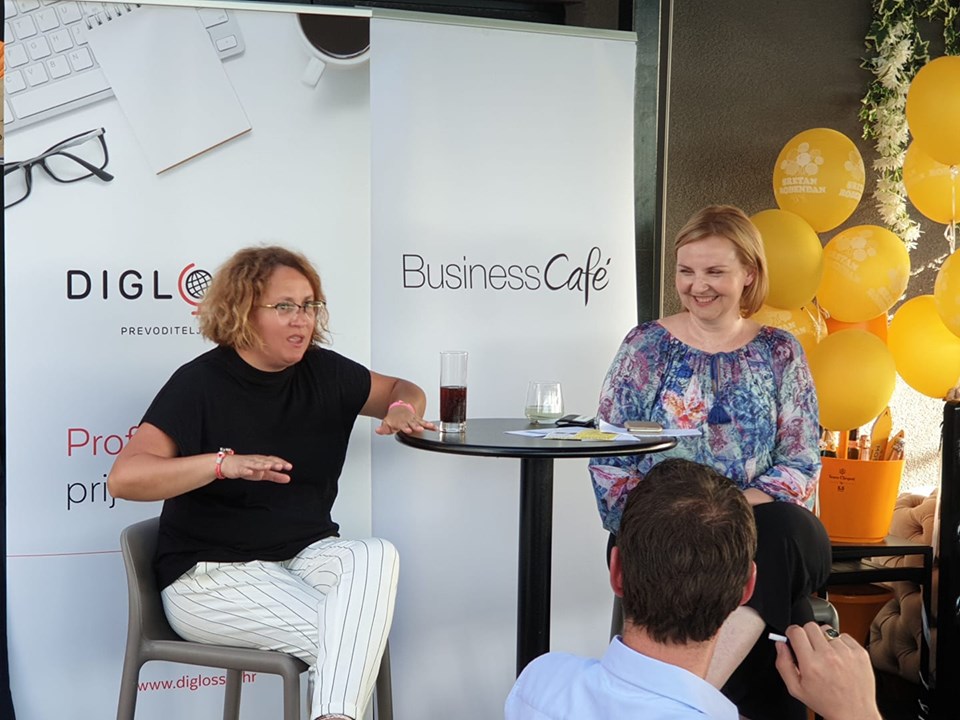
I am probably a little biased because we are friends, but the star of the evening was the first speaker, Mirela Rus from Romania, a very popular expat in Split who radiates positivity and determination to succeed. I had never heard Mirela speak publicly before, but it did not take long for the room to learn the secrets of her success in Croatia - the determination to succeed and unwillingness to take no for an answer.
Having fallen in love with a little Dalmatian slice of Paradise in Vinisce over a number of years, she decided that she wanted to swap life in Romania for a little Adriatic tranquility. Together with her husband Ionut, they engaged a real estate agent to find them the perfect piece of land. Eventually, she found the land herself, but then agreed to pay the agency the full commission if the agency would check the papers and guarantee all was in order. And so the problems began. Having taken the commission, it then appeared that it was not going to be possible to build on the land after all, at least for the forseeable future.
Determined to stay by the coast, she and Ionut started an online business selling nautical bracelets that Ionut designed and made himself, with Mirela doing all the marketing and online sales, something she had never done before.
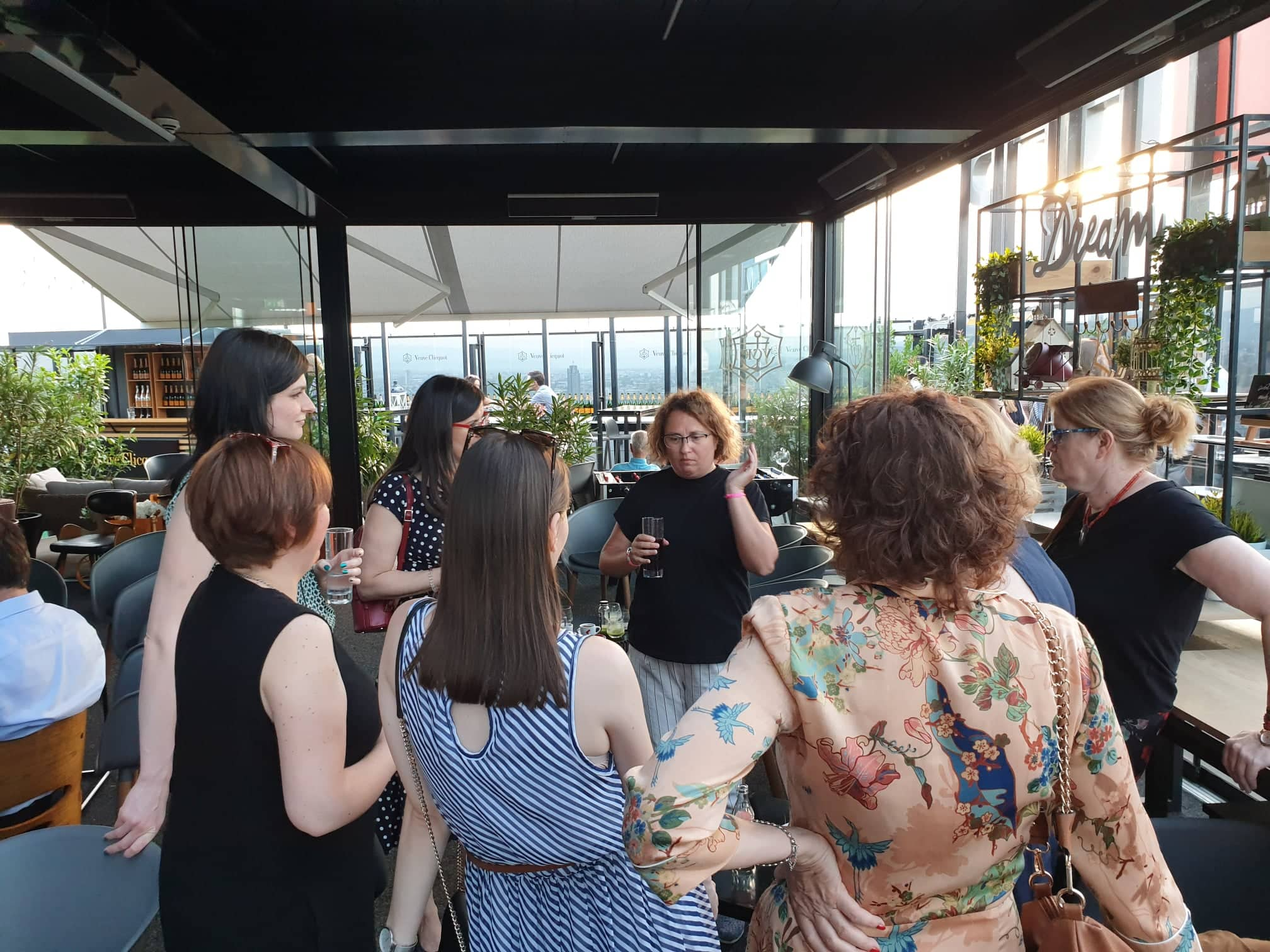
She thought about opening a small store in Split, and having seen a few places in and around Diocletian's Palace, they decided to take one and open right at the end of the season, in November. Selling just bracelets. People thought they were crazy, but the shop soon became a huge hit, all the more so after an article in Slobodna Dalmacija seemingly had the whole city popping in with their fresh fish after visiting the famous Split fish market. One store became two, became five, and Break Time Croatia now has outlets in Split (two), Dubrovnik, Rovinj and, most recently, Zagreb. You can learn more about this wonderful startup on the official Break Time Croatia website.
And there were plenty of entrepreneurs waiting to learn more when the formal presentations had finished. Mirela in her prime.
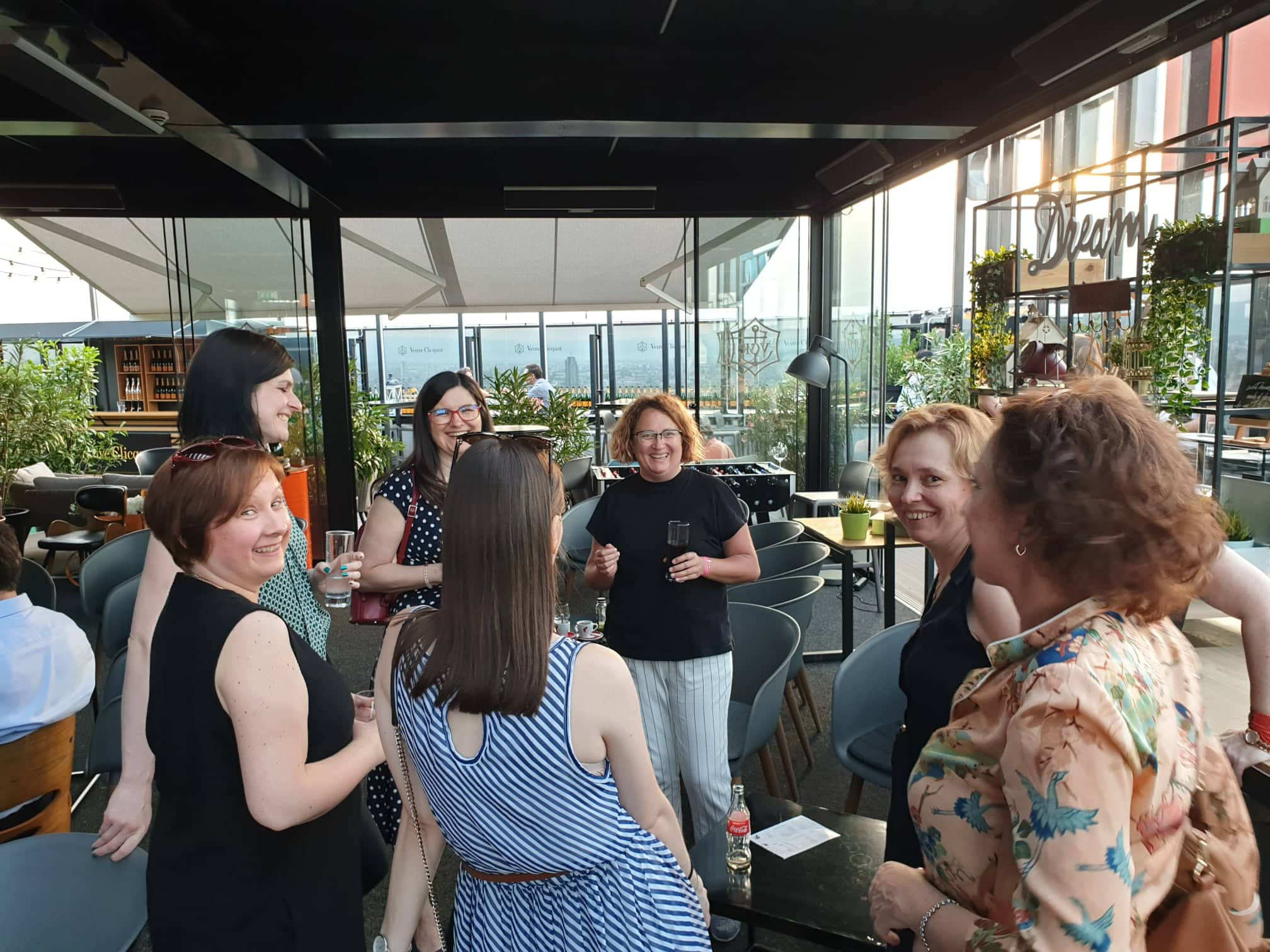
A good idea, absolute determination, and the refusal to take no for an answer. Simple ingredients which also work in Croatia, it seems.
And it seems that there is finally some progress on the building plot which has been stuck for so many years, and so finally they may be able to build their Dalmatian dream, from where they can continue their successful Croatian business.
To learn more about Business Cafe and future events featuring both Croatian and international speakers, visit the official website.
Want to learn more about foreign entrepreneurs who are enjoying success in Croatia?

